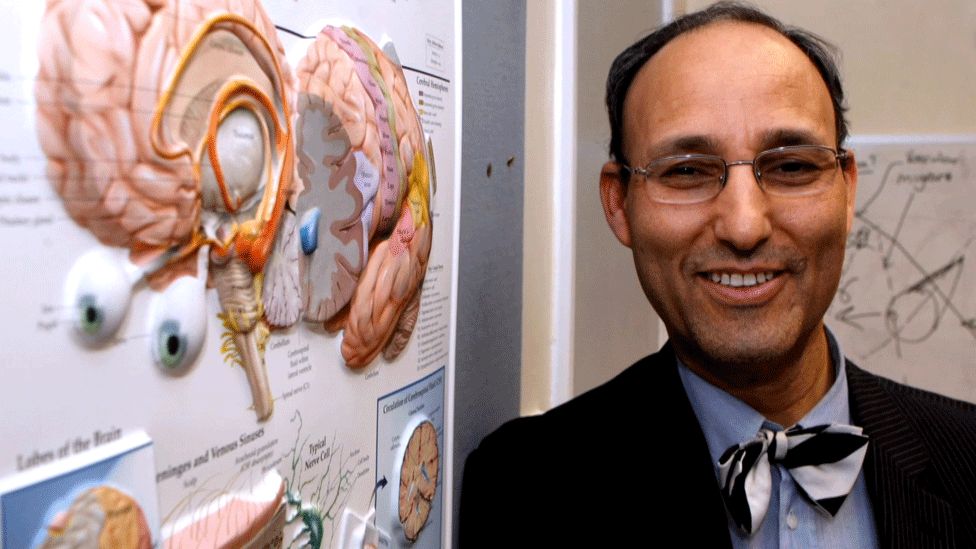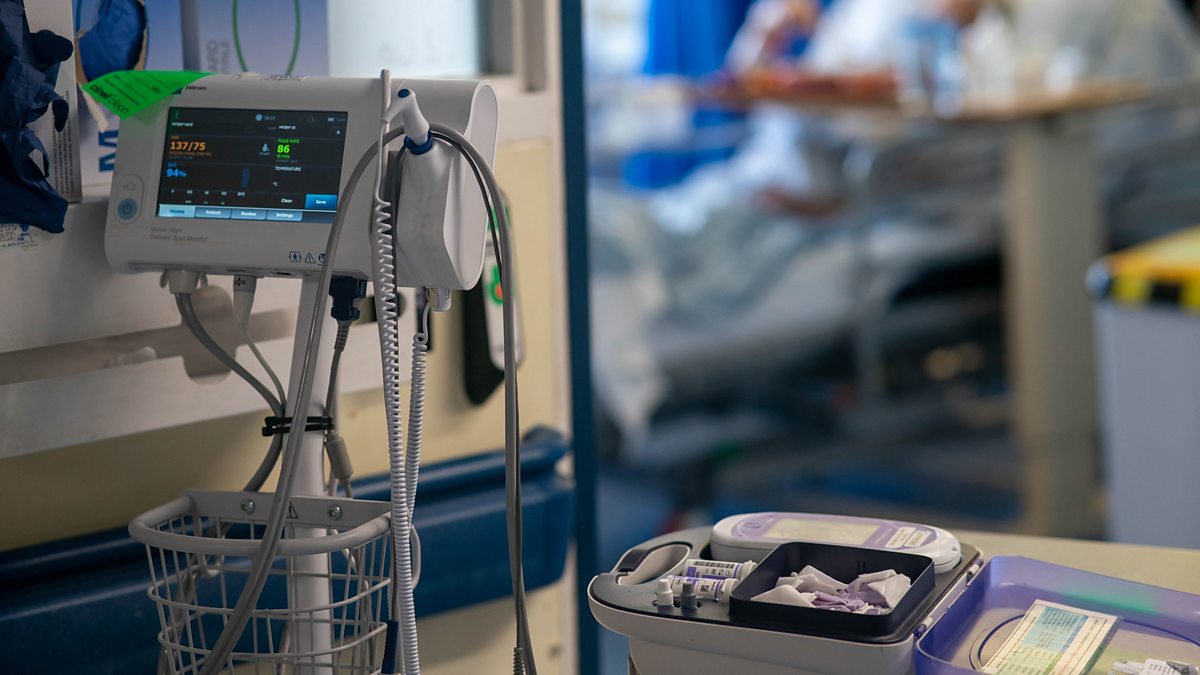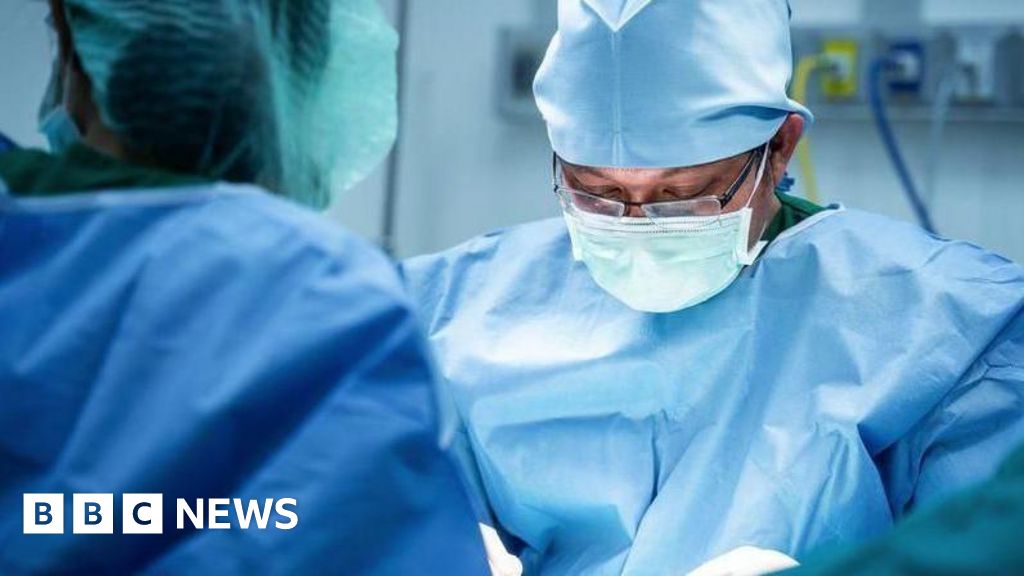ARTICLE AD BOX

NHS Tayside chiefs did not act strongly on serious complaints against Sam Eljamel
By Katy Scott
BBC Scotland news website
NHS Tayside has been criticised over its handling of disgraced surgeon Sam Eljamel in a new report.
The internal due diligence review criticised health board management for putting the doctor under indirect supervision in June 2013 rather than suspending him.
It follows years of revelations about Prof Eljamel.
The surgeon harmed dozens of patients but was allowed to continue operating until he was suspended in late 2013.
He was employed as a surgeon by NHS Tayside for 18 years and later became the head of the neurosurgery department in Ninewells Hospital in Dundee.
NHS Tayside has claimed it became aware of concerns around the surgeon in June 2013, but an NHS whistleblower told the BBC the health board knew as early as 2009 that there were serious concerns.
He is now working as a surgeon in Libya.
The due diligence report found missed opportunities for senior management to intervene and protect patients.
Despite a rising number of complaints, it said NHS Tayside failed to put in place adequate restrictions and monitoring of Prof Eljamel.
The surgeon was allowed to operate on 111 patients unsupervised despite being under clinical supervision after senior management were made aware of serious complaints.
It said that patients who were operated on during this time will receive a letter of apology from the health board.
The review said: "It was clear that he was not being truthful with his patients about procedures and he did not share mistakes with colleagues for learning and reflection."
Some of Prof Eljamel's patients have previously called for a full public inquiry into the case, as have MSPs from the Scottish Conservatives, Labour and Liberal Democrats.
'Risk of patient safety'
A complaint made in December 2012 triggered a Significant Clinical Event Analysis (SCEA) which found issues with Prof Eljamel's clinical practice.
The SCEA, as well as two further complaints, escalated the problem to medical management.
Prof Eljamel was interviewed by his clinical lead and clinical director, and it was concluded that he had "reflected and altered his practice significantly".
Sam Eljamel was the head of the neurosurgery department in Ninewells Hospital in Dundee
The review added: "There was no plan put in place to performance manage Prof Eljamel as a result of the meeting."
A second meeting was held 17 days later after further complaints emerged against the surgeon.
It was agreed an external review would be conducted by the Royal College of Surgeons (RCS) and he was placed under clinical supervision with restrictions on his practice the following day.
He also stopped his private clinical practice.
However the NHS Tayside report said there was "inadequate senior input which resulted in inadequate assessment of risk and consideration of patient safety."
It found that there was also no direct supervision of the surgeon's clinical practice, including surgery.
Prof Eljamel operated on 111 patients during his indirect supervision, with nine submitting complaints and two raising legal claims.
The report said: "These patients were placed at potential risk of harm due to the inadequacy of the supervision arrangements."
The RCS interim letter sent to the medical director in October 2013 stated that "there were signals of a poor doctor i.e. poor communication, poor behaviours and complaints".
The final RCS report was submitted on 6 December and Prof Eljamel was suspended four days later.
An internal investigation was later dropped after the surgeon resigned in May 2014.
He removed himself from the GMC register in 2015.
A redacted report on Sam Eljamel from the Royal College of Surgeons
The NHS Tayside report found a total of 98 complaints in documents held by the health board between 1995 until 30 June 2023.
However complaints made before 2012 are no longer available due to system changes and the report acknowledged that there may have been more.
The review found that the majority of complaints held - 84 - were received after Eljamel was suspended in December 2013, but they were related to surgical treatment from 1996 onwards.
And 20 legal claims were made against NHS Tayside around Prof Eljamel's surgical practice which took place from 1995 to March 2023, with the first claim made in February 2013.
Communication with patients impacted by Prof Eljamel was of "variable quality, fragmented and generally poor and there has been no central coordination to ensure a truly person-centred approach."
While there were "multiple systems" for identifying concerns around a clinician, the report said that "some of these systems were in their infancy and some were reliant on self-reporting of clinical outcomes."
Nine recommendations were made, including ensuring patient outcomes are collected and analysed to improve care.
The report said NHS Tayside had improved the governance, complaint and alert systems since Prof Eljamel resigned in 2013.
Health board apologises
NHS Tayside executive medical director Dr Pamela Johnston said the report concluded action taken on recommendations from the Scottish government review in 2022.
"We recognise that many former patients remain understandably very upset and unhappy with what has happened," she said.
"NHS Tayside apologises to former patients of the surgeon and remains committed to do whatever is required to support the independent commission which is being set up by Scottish government to respond to patients' ongoing concerns."
She urged any former patients with concerns to get in touch with the Patient Liaison Response Team.
Conservative MSP Liz Smith, Labour's Michael Marra and Liberal Democrat Willie Rennie urged the first minister and health secretary to carry out a full public investigation of the case.
Ms Smith said: "It is blatantly obvious that when a series of very serious allegations were made against Eljamel, he should have been suspended not put under casual observation when he could do more damage to patients.
"We know from what whistle-blowers told us earlier this year that those who worked with Sam Eljamel knew about the serious concerns, as did managers, yet they allowed him to continue practising in theatre."
Mr Marra said the admission had been "wrung from NHS Tayside like blood from a stone".
Mr Rennie added: "Without trust in the cabinet secretary and his process there is no other option but a public inquiry."

 1 year ago
48
1 year ago
48








 English (US) ·
English (US) ·